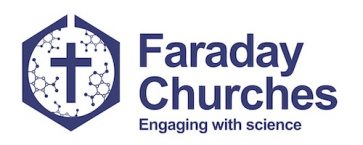There is no set of simple answers to every question about science and faith. There will always be difficult theological or philosophical issues to wrestle with, new technologies to discuss, and emerging fields of science to explore. Talks and training on these subjects can be delivered by the Church Engagement Director, other Faraday staff or emeritus members, and our wider network of specialist speakers. Our aim is to address theological concerns sensitively, teach the science in an accessible way, and demonstrate that science can enhance faith and vice versa.
What has science got to do with Christianity? (Introduction to Science and Christianity)
What is science, and does Christian theology have anything to do with its success? What would a theology of science look like? Which eminent scientists embraced Christianity – both in the past and present day? Questions like these allow us to leave behind some of the myths and misunderstandings about the relationship between science and religion, inspiring service in scientific fields, and making space for new conversations about the big questions that concern us all.
God in the lab (How science enhances faith)
Creativity and imagination are essential to the practice of science. Our experiments often contain or reveal details we find beautiful, and scientists at times speak of wonder and awe in their work. How do these experiences affect the scientific community, and do their responses vary depending on what they believe about God? Using data from a recent survey and some very beautiful images, we can discuss these ideas in a way that draws both scientists and non-scientists into the conversation.
Wonders of the living world (Science & Theology)
Most scientists feel a sense of awe from time to time in their work. This is just one of the places where science can raise questions of meaning and purpose that it cannot answer by itself. For many Christians in the sciences, these mountain-top moments are not proof of God’s existence, but what they see in the world resonates with their beliefs, and turns their attention to the character of God.
Who am I? (Psychology, Genetics & Neuroscience)
What happens in my brain when I pray? What do Christian neurologists think about the idea of a soul? Am I just my DNA? If psychology can explain my religious behaviour, what does that mean for my faith? When a person’s brain is affected through disease or disaster, what happens to the person they once were? Research in genetics, neuroscience and psychology raises so many important questions for the way we see ourselves, our faith, and those around us.
Why are we here? (Astronomy and Physics)
What happened at the Big Bang? Is the universe rigged so that life will develop? Could there be life on other planets? Cosmological arguments have often been used for or against God, so it’s good to explore them and see their strengths and weaknesses. Looking at such large scales of space and time expands our horizons and helps us to worship the God who made it all.
What difference do I make? (Creation Care)
The Bible has much to say about the value of creation – how all creation praises God – both now and in eternity, and Christians are called to serve and preserve creation. How can we do that, when so many on the planet need its resources, so many habitats are degraded and seemingly beyond repair, and human-induced climate change might be spinning out of control? How can just one person’s actions make a difference? With these question in mind, we can explore the current findings of science, and the appropriate responses from the Christian community.
Should we play God? (Bioethics)
New technologies come along all the time: genetic testing, gene therapy, stem cells, IVF and manipulation of embryos in a variety of ways, GM crops, and so on. We will increasingly need to make decisions about these technologies. It’s important that we understand the basics about the science, and also the Biblical arguments for and against using these technologies in different circumstances.
Do we have to choose between God and science? (Creation and Evolution)
What do the Biblical creation narratives say – if anything – about modern science? Did humans evolve, and if so who were Adam and Eve? Are death and physical suffering a result of the fall? In these discussions it’s important to draw on the work of trusted Biblical scholars who can reveal the full richness and depth of the text. It’s also good to understand what the science is actually saying, and learn to distinguish it from the ideology that can be attached to scientific theories. This can be a controversial topic, but if we focus on the primary messages of the creation texts, we can have a constructive and encouraging conversation that helps our faith to grow.
Who cares if I have a relationship with my phone? (Robots and Artificial Intelligence)
New technological developments are happening so quickly these days – smartphones, self-drive cars, intelligent robots, and so on – and they have the potential to change our lives forever. Can we embrace the good uses of these technologies and just ignore the bad, or should we be more intentional about the way they affect our lives? How can we have a voice in society so that vulnerable people are protected against their misuse? With broad Biblical principles and a clear understanding of the technologies, we can start to answer some of these questions for ourselves and our own communities.
Should a scientist pray for healing? (Miracles)
Every Christian believes in the ultimate miracle – the resurrection of Jesus Christ. But how can a scientist believe in miracles today? Should we pray for healing? Looking at what the Bible says about signs and wonders, we will look at how Christians can answer these questions.
Why do bad things happen to good people? (Suffering & Natural Disasters)
If God exists, why does he let bad things – such as disease or ‘natural disasters’ – happen to ‘good people’? Do we deserve a life free from suffering? What does the fall have to do with it all? What actually causes the disastrous outcomes of events such as earthquakes? These difficult and sensitive issues must be addressed if we are to hold onto and grow in our faith in times of suffering, and support others who are going through difficult times.





